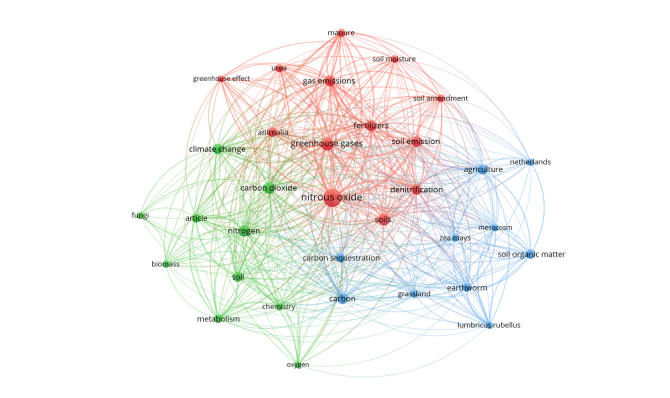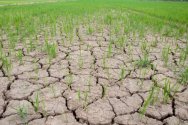
Soils in a Changing Climate
The theme 'Soils in a changing climate' relates to what may be the most pertinent environmental threat facing humanity: climate change as a result of man-made greenhouse gas. We study both the effects of climate change on soil life and the controls that soil life exerts on greenhouse gas emissions from the soil.

Soils are pivotal with respect to climate change. The rising temperatures and projected increases in extreme weather events will have profound effects on soil ecosystem functioning and sustainable agricultural production. Within this theme, we study how we can utilise soil biodiversity to increase the resilience of our soils. For example, we study whether increased plant diversity in managed grasslands can increase the resilience against flooding.
However, our main focus is not on the effects of climate change, but on its causes. The soils of the world can be both a formidable source and sink of the three main greenhouse gases (carbon dioxide – CO2; nitrous oxide – N2O; methane – CH4), the balance being determined by soil management. We study how proper soil management can improve this balance. We always do this within the context of sustainable crop production, in a wide range of systems across the globe. For example, we study the relationship between organic fertilisation and greenhouse gas emissions in paddy rice systems in southeast Asia, but also effects of rainforest degradation on the carbon balance of peat soils in the Amazon. Furthermore, we explore whether we can reduce soil GHG emissions by stimulating functional diversity of soil organisms. We do this both for soil fauna diversity and for plant diversity in managed grasslands.
Finally, we actively engage in the scientific debate on how to mitigate global change at the global scale. For example: we coined the term “yield-scaled emissions” as an important metric to compare the climate-costs of different agroecosystems and we recently were lead author of an opinion paper on the feasibility of the “4P1000” carbon sequestration goals.
